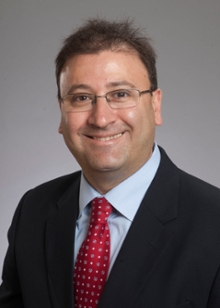
Emory University Department of Emergency Medicine faculty are working in collaboration with the Middle East & North Africa Clinical Toxicology Association (MENATOX) to organize an international medical toxicology conference. The purpose of the conference is to educate physicians in the MENA region about the impact of chemicals, toxins and radioactive materials, among other hazards.
MENATOX 18 will be held in Muscat, Oman from March 21-24, 2018. This is the seventh year Emory physicians have been instrumental in planning the toxicology conference.
Alongside a vibrant group of medical toxicologists from MENA, this annual conference has been developed and chaired by Ziad Kazzi, MD, associate professor of emergency medicine at Emory, who is Lebanese and originally from the MENA region. The conference focuses on challenges and conflicts often faced in the region, in an effort to advance the field of clinical toxicology. Medical Toxicology is a branch of clinical science that deals with the nature, effects, detection, and management of poisonings.
At this year’s conference in Oman, MENATOX is partnering with the Omani Ministry of Health and National Center for Disease Control. The conference is expected to draw approximately 150 participants from Bahrain, France, Iraq, India, Turkey, Kazakhstan, Lebanon, New Zealand, Oman, Palestine, Qatar, Saudi Arabia, Sudan, United Arab Emirates, United Kingdom, United States of America and Yemen.
“Medical toxicology training programs do not exist in the MENA region, so arming these health care workers with valuable information, education and clinical resources is critical,” says Kazzi, who is president of MENATOX. “Scientific sessions will focus on topics ranging from toxic alcohol ingestion to seafood poisoning to lab safety while working with poisons to dealing with chemical and biological warfare. Teaching participants how to recognize and treat illnesses and chemical injuries, and knowing when to protect themselves while treating patients is key.”
Disaster and emergency preparedness and chemical security will also be highlighted at the conference. Another session will focus on developing and running a Poison Control Center, taught by Gaylord Lopez, PharmD, director of the Georgia Poison Center. Brent Morgan, MD, professor of emergency medicine at Emory and assistant medical director of the Georgia Poison Center will participate in a number of sessions ranging from opioid abuse and addiction to chemical emergencies. Other Emory experts will speak at the conference including: Patricia Olinger, assistant vice president in the office of research administration & executive director of the Environmental, Health and Safety Office, 13 Emory fellows and alumni and experts from the Centers for Disease Control and Prevention (CDC) and the American College of Medical Toxicology. Conference attendees will also hear from regional speakers.
“This is an extremely unique international toxicology program developed by Dr. Kazzi with a goal to enhance practitioner education regarding poisonings in parts of the Middle East and North Africa,” says Katherine Heilpern, MD, professor and Ada Lee and Pete Correll Chair of the Department of Emergency Medicine at Emory. “We support his efforts, hard work and dedication to bring this important field of medicine to the MENA region.”
At Emory, Kazzi is the director of the International Postdoctoral Medical Toxicology Fellowship Program. It is the largest program of its kind in the world and will graduate its 14th fellow this summer. Many participants and speakers at the MENATOX conference have graduated through the Emory program, and are now working all over the globe in medical toxicology.
For more information on MENATOX 2018, visit: www.menatox.org/. For more information about the Emory International Postdoctoral Fellowship Program, visit: www.em.emory.edu/services/toxicology/international_postdoc_training.html
